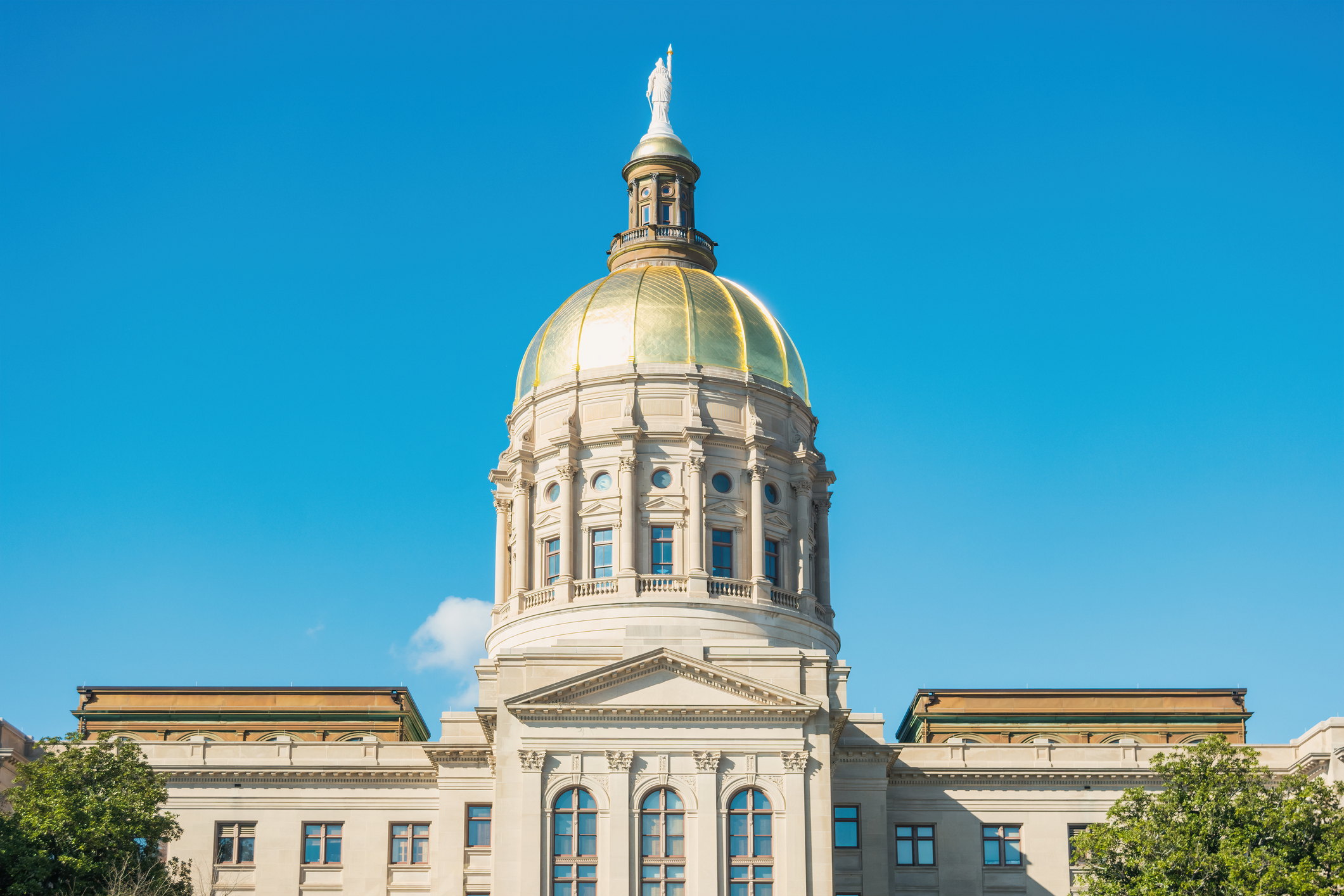New ‘Taylor Swift Tax’ on Vacation and Second Homes: Is Your Home Next?
An upcoming tax on luxury vacation homes is garnering attention on social media. Could a similar property tax land in your state soon?


Profit and prosper with the best of Kiplinger's advice on investing, taxes, retirement, personal finance and much more. Delivered daily. Enter your email in the box and click Sign Me Up.
You are now subscribed
Your newsletter sign-up was successful
Want to add more newsletters?

Delivered daily
Kiplinger Today
Profit and prosper with the best of Kiplinger's advice on investing, taxes, retirement, personal finance and much more delivered daily. Smart money moves start here.

Sent five days a week
Kiplinger A Step Ahead
Get practical help to make better financial decisions in your everyday life, from spending to savings on top deals.

Delivered daily
Kiplinger Closing Bell
Get today's biggest financial and investing headlines delivered to your inbox every day the U.S. stock market is open.

Sent twice a week
Kiplinger Adviser Intel
Financial pros across the country share best practices and fresh tactics to preserve and grow your wealth.

Delivered weekly
Kiplinger Tax Tips
Trim your federal and state tax bills with practical tax-planning and tax-cutting strategies.

Sent twice a week
Kiplinger Retirement Tips
Your twice-a-week guide to planning and enjoying a financially secure and richly rewarding retirement

Sent bimonthly.
Kiplinger Adviser Angle
Insights for advisers, wealth managers and other financial professionals.

Sent twice a week
Kiplinger Investing Weekly
Your twice-a-week roundup of promising stocks, funds, companies and industries you should consider, ones you should avoid, and why.

Sent weekly for six weeks
Kiplinger Invest for Retirement
Your step-by-step six-part series on how to invest for retirement, from devising a successful strategy to exactly which investments to choose.
Starting next summer, Rhode Island will impose a new property tax surcharge on luxury second homes valued at or over $1 million that aren’t used as a primary residence.
On its own, that tax might not get a lot of attention. However, the new levy, which supporters say would help address housing shortages and fund affordable housing programs, has been trending on social media, after being nicknamed the “Taylor Swift tax.”
Just to be clear: Swift is not directly involved with the tax, but reportedly owns a sprawling $17 million mansion in the upscale Watch Hill area of Rhode Island, which would be subject to the new measure.
From just $107.88 $24.99 for Kiplinger Personal Finance
Become a smarter, better informed investor. Subscribe from just $107.88 $24.99, plus get up to 4 Special Issues

Sign up for Kiplinger’s Free Newsletters
Profit and prosper with the best of expert advice on investing, taxes, retirement, personal finance and more - straight to your e-mail.
Profit and prosper with the best of expert advice - straight to your e-mail.
As a result, the property tax fee puts the Ocean State at the forefront of a growing movement to tax owners of high-end vacation properties.
So the question on some homeowners’ minds is: Could a similar so-called "Taylor Swift Tax" be coming to your property in another state? Here’s more to know.
What the ‘Taylor Swift Tax’ means for vacation homes in 2026
Under what is officially called the Non-Owner Property Tax Act, the following will take effect in Rhode Island as of July 1, 2026:
- Rhode Island’s new tax will impact second homes valued at $1 million or more as of Dec. 31st of the tax year and not used as a primary residence or rented out for at least 183 days per year.
- The surcharge applies to every $500 of assessed value above $1 million at a rate of $2.50 per $500.
- So, a $3 million second-home owner could face a surcharge of approximately $10,000 annually, in addition to regular property taxes.
The surcharge is designed to encourage owners to either use their properties more frequently or make them available for rent, reducing the number of empty houses. According to state officials, the tax base will adjust annually for inflation starting in 2027.
While the tax targets all non-owner-occupied properties over $1 million, the association with Swift’s beachfront estate has made the nickname stick in headlines.
For example, for Swift’s Watch Hill mansion, the tax will add approximately $136,000 annually, reportedly nearly doubling the current property tax bill for that property.
Why Rhode Island is leading the way
In Rhode Island, coastal towns have experienced soaring home prices and a shortage of affordable housing. Some say wealthy absentee owners contribute to this by buying second homes, which have driven prices up, leaving homes vacant for large parts of the year.
Some lawmakers see the “Taylor Swift tax” as a win-win approach: generate new revenue to invest in affordable housing and nudge absentee owners to either use or rent their properties more regularly.
But not everyone is on board. Some real estate agents and some residents say that the tax unfairly penalizes people who already pay substantial property taxes and contribute significantly to local economies.
- The argument is that many of these second homeowners, including long-time families and investors, are vital patrons of local businesses, restaurants, and services, even if they don’t live there year-round.
- Critics also worry that the surcharge could chill the market, forcing some owners to sell and potentially harming towns that rely on second-home tourism revenue.
Will other states follow and increase property taxes on vacation homes?
Rhode Island isn’t alone on this. Similar surcharges on expensive vacation homes and second homes have been proposed or enacted in states like Montana and localities in California and Massachusetts.
Montana: Starting in 2025, Montana implemented a graduated property tax system that increases rates on luxury homes and non-primary residences. Homes valued above $1.5 million face a tax rate of 2.2%, higher than the lower brackets for more modest homes. This new structure was signed into law by Gov. Greg Gianforte.
Cape Cod: Cape Cod is considering a 2% transfer fee on luxury home sales over $2 million to help fund affordable housing. The proposal, backed by local leaders and housing advocates, is currently under review by the Barnstable County Assembly of Delegates. If approved, the fee could generate up to $56 million annually to support year-round housing for working families, seniors, and young people.
L.A. “mansion tax”: As Kiplinger has reported, Los Angeles’ Measure ULA in California, the so-called “mansion tax,” was approved by voters in 2022 and took effect in April 2023. As of July 1, 2025, it imposes a 4% transfer tax on property sales between $5.3 million and $10.6 million, and a 5.5% tax on sales above $10.6 million, reportedly generating hundreds of millions of dollars for affordable housing and homelessness programs.
As state and local governments look for new revenue streams, these models could offer a framework for states looking to balance tax fairness and affordability in the housing market.
Rhode Island ‘Taylor Swift Tax’: What homeowners need to know
If you own a second home in Rhode Island — or are considering buying — take note of this tax change. Owners planning to keep their properties mostly empty may face a steep surcharge starting in mid-2026.
To avoid the tax, owners may have to either make the home their primary residence (spending at least half the year there) or rent it out for the majority of the time.
Whether the so-called “Taylor Swift Tax” succeeds will be a story that “Swifties,” homeowners, and policymakers will watch.
In the meantime, pay attention to key tax changes in your state and consult a trusted tax professional to understand how any changes might impact your bottom line.
Read More
Profit and prosper with the best of Kiplinger's advice on investing, taxes, retirement, personal finance and much more. Delivered daily. Enter your email in the box and click Sign Me Up.

Kelley R. Taylor is the senior tax editor at Kiplinger.com, where she breaks down federal and state tax rules and news to help readers navigate their finances with confidence. A corporate attorney and business journalist with more than 20 years of experience, Kelley has helped taxpayers make sense of shifting U.S. tax law and policy from the Affordable Care Act (ACA) and the Tax Cuts and Jobs Act (TCJA), to SECURE 2.0, the Inflation Reduction Act, and most recently, the 2025 “Big, Beautiful Bill.” She has covered issues ranging from partnerships, carried interest, compensation and benefits, and tax‑exempt organizations to RMDs, capital gains taxes, and energy tax credits. Her award‑winning work has been featured in numerous national and specialty publications.
-
 Quiz: Do You Know How to Avoid the "Medigap Trap?"
Quiz: Do You Know How to Avoid the "Medigap Trap?"Quiz Test your basic knowledge of the "Medigap Trap" in our quick quiz.
-
 5 Top Tax-Efficient Mutual Funds for Smarter Investing
5 Top Tax-Efficient Mutual Funds for Smarter InvestingMutual funds are many things, but "tax-friendly" usually isn't one of them. These are the exceptions.
-
 AI Sparks Existential Crisis for Software Stocks
AI Sparks Existential Crisis for Software StocksThe Kiplinger Letter Fears that SaaS subscription software could be rendered obsolete by artificial intelligence make investors jittery.
-
 10 Cheapest Places to Live in Colorado
10 Cheapest Places to Live in ColoradoProperty Tax Looking for a cozy cabin near the slopes? These Colorado counties combine reasonable house prices with the state's lowest property tax bills.
-
 Do You Pay Property Taxes in Tennessee? What You Need to Know in 2026
Do You Pay Property Taxes in Tennessee? What You Need to Know in 2026Property Taxes State lawmakers are moving to ban state property taxes, but can they stop the local rate spike? Here's how 2026 could lower your Tennessee property tax bill.
-
 Georgia Tax Rebate And Income Elimination? What 2026 Could Mean For You
Georgia Tax Rebate And Income Elimination? What 2026 Could Mean For YouState Tax We break down how lawmakers aim to axe the state income tax and how much you could get in a Georgia tax refund in 2026.
-
 10 Cheapest Places to Live in Washington
10 Cheapest Places to Live in WashingtonProperty Tax Is Washington your go-to ski destination? These counties combine no income tax with the lowest property tax bills in the state.
-
 Retirees in These 7 States Could Pay Less Property Taxes Next Year
Retirees in These 7 States Could Pay Less Property Taxes Next YearState Taxes Retirement property tax bills could be up to 65% cheaper for some older adults in 2026. Do you qualify?
-
 Are You Middle-Class? Here's the Most Tax-Friendly State for Your Family
Are You Middle-Class? Here's the Most Tax-Friendly State for Your FamilyTax Tips We found the state with no income tax, low property tax bills and exemptions on groceries and medicine.
-
 Could Tax Savings Make a 50-Year Mortgage Worth It?
Could Tax Savings Make a 50-Year Mortgage Worth It?Buying a Home The 50-year mortgage proposal by Trump aims to address the housing affordability crisis with lower monthly mortgage payments. But what does that mean for your taxes?
-
 The Original Property Tax Hack: Avoiding The ‘Window Tax’
The Original Property Tax Hack: Avoiding The ‘Window Tax’Property Taxes Here’s how homeowners can challenge their home assessment and potentially reduce their property taxes — with a little lesson from history.